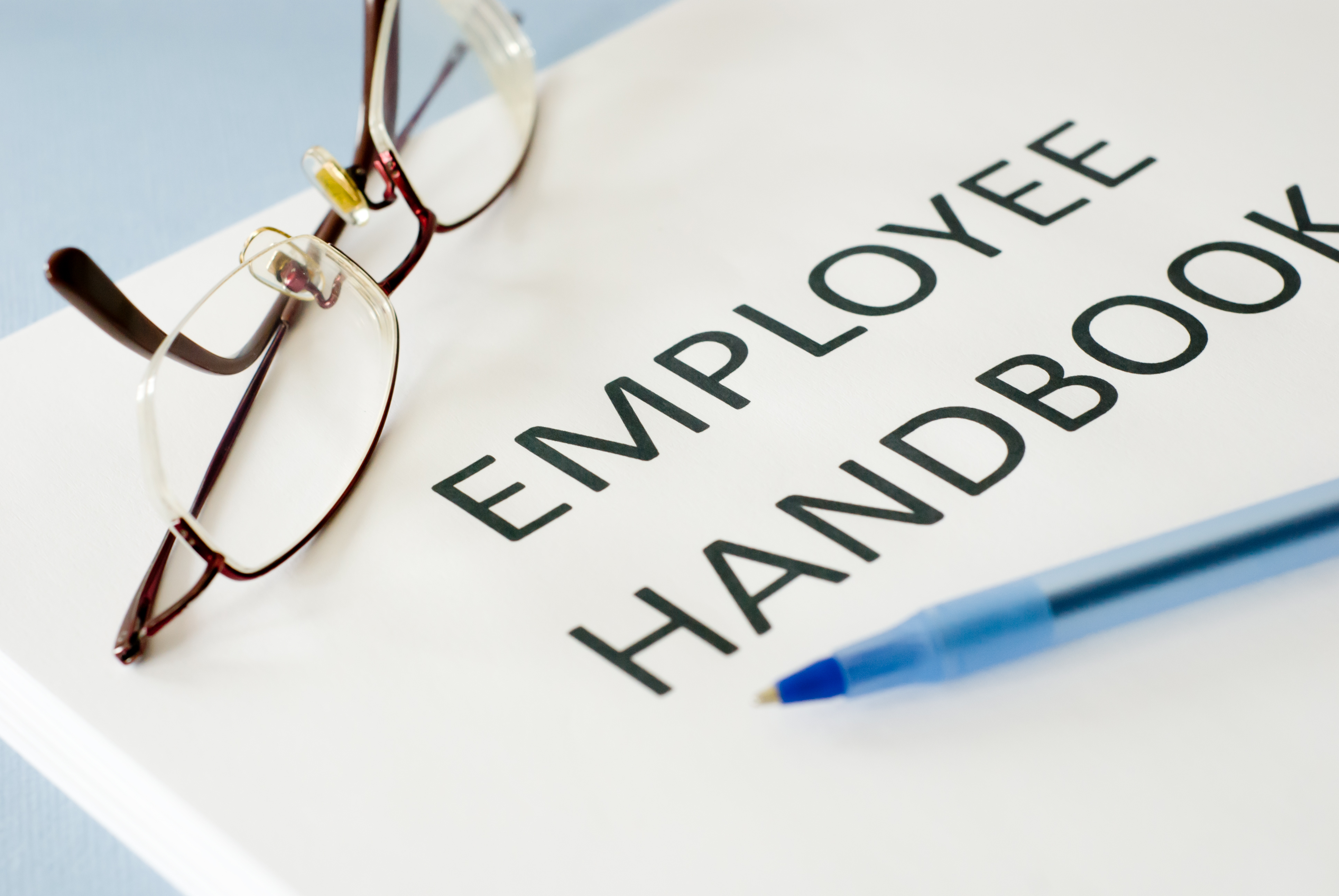Employee Handbook - A Tool You Shouldn't Be Without
Employee handbooks serve many purposes in an organization. They can be considered tools for risk management, communication of expectations, and a guidebook of general rules for the workplace.

Employees are not the only ones to benefit from handbooks, but managers and employers also gain an advantage from a well-written and professional-looking handbook. Here is how:
- Employees – The handbook should outline how employees are to behave and what the consequences are if they don’t. It will teach them what needs to be done in their job to be successful in the company. The handbook should serve as a protection to employees by outlining a process for complaining about possible harassment, reporting an on-the-job injury, and promoting awareness of workplace violence. Other areas that should be covered are the absence reporting process, how to request time off from work, what dress is appropriate, and how the company feels about complying with all employment laws.
- Managers – Consistency is key for managers. They must have a set of standards for how to handle organizational issues. This should not be step-by-step instructions they must follow, but should consist of principles they can apply consistently in employee relations, performance management, and other areas within their scope of responsibility.
- Employers – The handbook is a mouthpiece for employers to openly communicate their behavioral expectations for employees and managers alike. It gives clearly defined parameters for personal conduct, acceptable behaviors, and company expectations. It is also an effective tool for communicating a summary of the benefits of employment with their organization, (e.g. paid time off, medical and other insurance coverages offered, tuition reimbursement, retirement planning, etc.).
Ensuring employees have easy access to the employee handbook and have acknowledged its receipt can go a long way to protect an employer in a lawsuit. Sometimes copies of the policy violated and the acknowledgement of the handbook receipt are all that is needed to dispute an unemployment claim. Now is the time to minimize your risk by having an up-to-date, legally compliant, and tailored to your company handbook. It conveys to your employees you care about them and their success!
Source: Brannen, D. Albert. “Why Your Company Needs a Handbook.” Fisher & Phillips Attorneys at Law.
« Return to "Consulting and Training"
